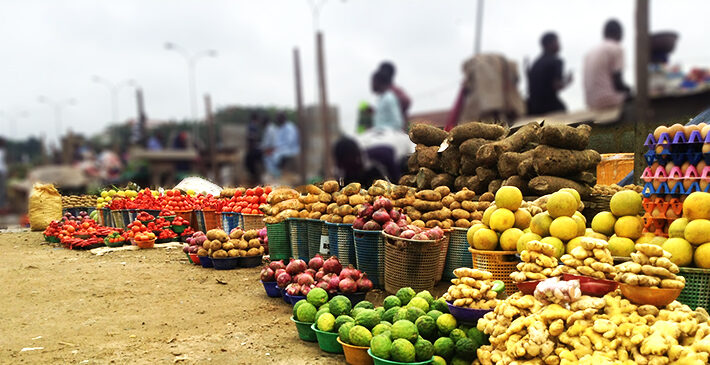In a significant step toward strengthening Nigeria’s agricultural resilience and human development, the Federal Government has entered into a strategic partnership with the Permanent Interstate Committee for Drought Control in the Sahel (CILSS) to improve the nation’s food systems and nutritional security. The partnership aims to tackle persistent challenges affecting food availability, malnutrition, and sustainable farming practices, especially in regions vulnerable to climate variability and economic hardship.
The collaboration, announced after a high-level technical meeting between Nigerian agricultural authorities and representatives of CILSS, is part of a broader regional initiative focused on building stronger food systems across the Sahel and West Africa. With Nigeria being a key player in the region’s agricultural and demographic dynamics, the move is seen as pivotal in addressing the deepening food crisis, rising inflation, and nutrition-related health issues affecting millions of Nigerians.

The Federal Ministry of Agriculture and Food Security, which is leading the initiative on behalf of the Nigerian government, said the partnership will prioritize evidence-based policy development, integrated early warning systems, and capacity building for both smallholder farmers and institutional stakeholders. A senior official in the Ministry emphasized that the government’s commitment to achieving zero hunger and improved nutritional outcomes by 2030 is aligned with the collaboration’s goals.
According to the ministry, Nigeria continues to grapple with high rates of food insecurity, with millions of households unable to access sufficient, safe, and nutritious food. Rural communities, especially in the northern and central belts, face compounded challenges from climate-induced droughts, conflict, poor infrastructure, and market disruptions. These factors have contributed to declining agricultural productivity, post-harvest losses, and chronic undernutrition, particularly among children and women.
The partnership with CILSS will leverage the organisation’s long-standing expertise in agro-meteorology, sustainable land management, and food security monitoring. CILSS, a regional body comprising 13 West African countries, has decades of experience in implementing regional frameworks that integrate science, policy, and local community engagement. It is expected to provide technical support to Nigeria in climate-smart agriculture, early warning systems, nutrition-sensitive agriculture, and data-driven planning for resilience.
One of the initial targets of the collaboration is to improve Nigeria’s capacity for food and nutrition data collection, analysis, and dissemination. Reliable data is critical for guiding interventions, distributing aid, and making informed policy decisions. In this regard, a joint task force comprising experts from the National Bureau of Statistics (NBS), the Ministry of Agriculture, the National Emergency Management Agency (NEMA), and other relevant bodies is being established to coordinate national-level assessments and reporting.
Additionally, the initiative seeks to mainstream nutrition into agricultural programming. This includes promoting diversified crop production, local food fortification, and agricultural techniques that preserve soil and water resources. CILSS will support Nigeria in implementing best practices from neighboring countries that have recorded success in reducing food insecurity and child malnutrition through community-based approaches and targeted subsidies for vulnerable groups.
In the wake of the COVID-19 pandemic and global economic instability, Nigeria’s food security situation has become more precarious. Rising food prices, supply chain disruptions, and input shortages have pushed millions closer to hunger. Malnutrition indicators remain troubling, with stunting, wasting, and micronutrient deficiencies prevalent among under-five children and pregnant women. These statistics underline the urgency of collaborative action.
The Nigerian government noted that this partnership marks a shift toward more sustainable, inclusive, and integrated approaches to agricultural development. Officials said the focus is not only on producing more food but also on ensuring that the food is accessible, affordable, and nutritious. Investment in agricultural value chains, nutrition education, and rural infrastructure will complement the technical components of the agreement.
CILSS representatives expressed optimism about the partnership’s potential to make a lasting impact. They commended Nigeria for taking a proactive stance in strengthening national and regional cooperation to confront the shared threat of food insecurity. The team highlighted Nigeria’s agricultural diversity and human capacity as key assets that, if well-leveraged, could turn the country into a model for food and nutrition security in West Africa.
Stakeholders across the agricultural and development sectors have welcomed the partnership, describing it as timely and strategic. Civil society organisations, nutrition advocates, farmer associations, and development partners have called for full transparency and inclusivity in the implementation process. They stress the importance of reaching grassroots communities, especially in areas affected by conflict and displacement, where food access is most limited.
As part of the implementation roadmap, the government and CILSS are expected to roll out pilot projects in select states, which will serve as case studies for scaling up across the country. These pilots will integrate nutrition education, women’s empowerment, climate adaptation, and youth involvement, with a focus on building long-term food system resilience.
In a country where food and nutrition insecurity threaten social stability and economic growth, this renewed partnership represents a chance to reset priorities and build a healthier, more self-reliant population. With clear political will, technical cooperation, and community engagement, Nigeria may begin to chart a new course—one where every citizen has consistent access to food that sustains life and health.
Support InfoStride News' Credible Journalism: Only credible journalism can guarantee a fair, accountable and transparent society, including democracy and government. It involves a lot of efforts and money. We need your support. Click here to Donate
